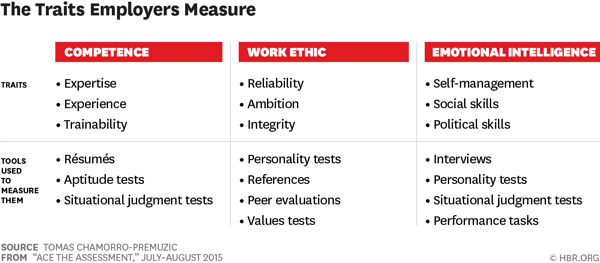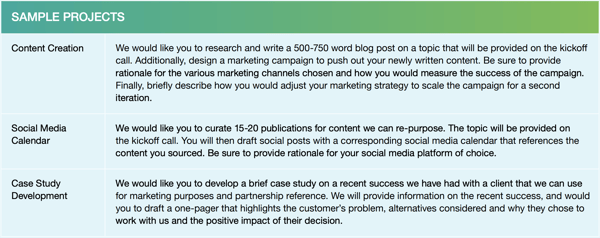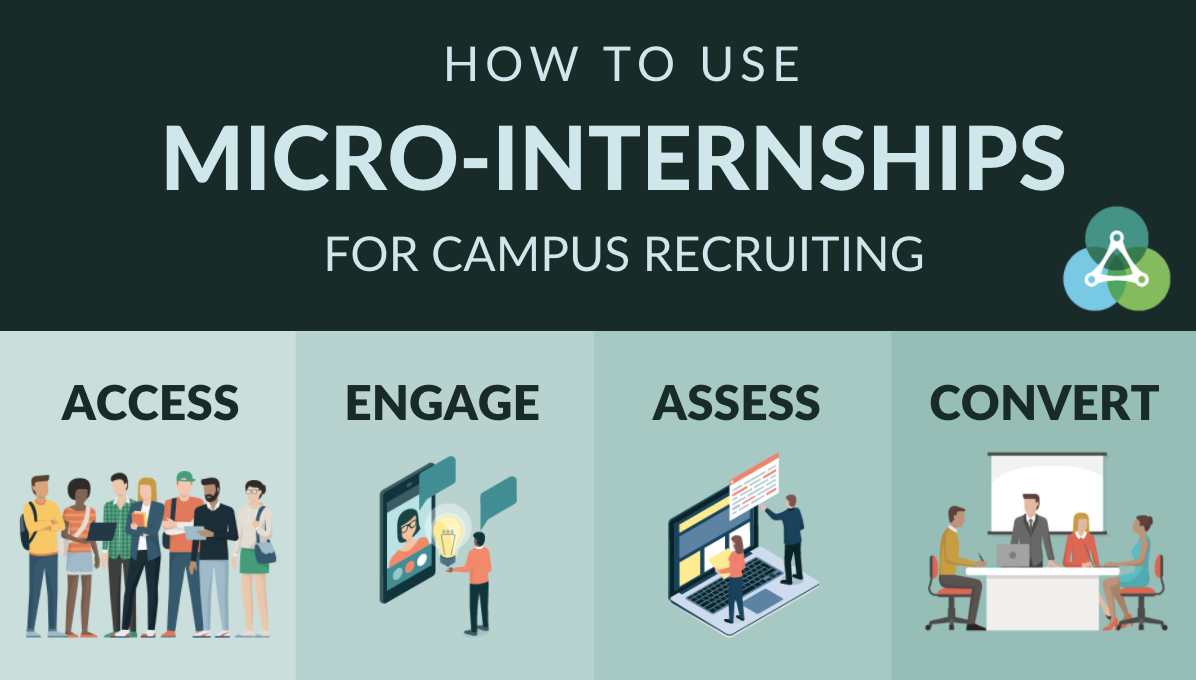
Campus Recruiting for Better Talent Acquisition Part 2: How to Assess Job Candidates
As a recruiter, you hold the key to your company’s future. The people you hire will be the ones driving the success throughout your company’s departments. To determine that your hires are suitable for the part, assessing your job candidates is a critical step.
Whether your assessment process involves screening through cover letters and resumes, cognitive ability tests, and/or lengthy interviews, you are collecting the vital information needed to understand the level of a combination of skills a job seeker has to support your teams’ success.
While today’s recent graduates navigate the challenges of the current job market, we want to share some suggestions and best practices that help you and your team evaluate the best candidates to make sure your assessments are as effective as possible.
|
For the most recent statistics on recruiting Generation Z, check out our data-based webinar replay on Reinventing University Recruiting. |
What is assessment?
The assessment phase of the recruiting process happens when you are screening and evaluating a candidate’s potential fit for the job.
New and helpful HR technologies are abundant, and changing just as fast as the generations that these tools help you assess. However, connecting on a personal level with your candidates throughout this process increases the likelihood that top talent continues to engage with your company as you keep their interest.
Interestingly enough, data collected from a survey done by Universum found that 70% of applicants are screened out from the start—specifically those from diverse backgrounds. This creates a larger problem when these applicants never even apply because they may not see themselves, or people like them, working for you. Unfortunately, they might be just the candidate you are looking for.
Application criteria and diversity
Let’s take a look at your current assessment methods. How are you helping student candidates or recent graduates gain exposure to various opportunities within your organization to gain and maintain their interest?
If you are targeting specific geographies, consider expanding your reach beyond any ‘focus schools’ on your list to uncover a broader pipeline of talent, especially if your company supports remote work.. If you are screening out candidates who may have the right skills but don't necessarily have the “right” academic pedigree, it can hinder any diversity and inclusion initiatives that you may have.
|
TIP: You may also think about creating content, offering educational workshops, or other experiential recruiting methods like Micro-Internships to provide a more robust understanding of you as an employer. |
Assessment methods and tools
Most employers use the same types of assessment methods to find and select which candidates will move forward for the next phase of the hiring process. According to the Harvard Business Review, assessments screen for three key traits in candidates: competence, work ethic, and emotional intelligence. The complexity and seniority of the role will determine the extent of each assessment method you use.

Resumes, personality tests, and interviews are some of the most common methods used in combination to assess candidates. Specifically, aptitude and personality tests are used by 76% of organizations with more than 100 employees. Let’s break down each of these assessment techniques to see why they are important, but might not work well for entry-level candidates.
Resumes
When reviewing resumes from recent college graduates, it’s likely they don’t have enough professional experience to fill up the page. However, this does not mean they don’t have the skills to do the job well or the willingness to learn quickly. Screening candidates based on this method can oftentimes overlook their integrity in the professional world and takes away from their ability to showcase the qualities they can bring to a position.
Aptitude & personality tests
While many companies rely on these tests to predict performance, there are downsides to this method of assessment. Personality isn’t everything when it comes to finding the right fit. In a recent Fast Company article, psychology professor, Art Markman, states “A person who expresses a strong desire to take on a particular role is likely to learn new skills and habits that will allow them to succeed in that role, even if their personality characteristics would suggest they are not well-suited to that job. That internal motivation to succeed is often a stronger force than the motivation provided by personality characteristics.” Personality can show that candidates are motivated to act and do well, but is not the only factor that can demonstrate it.
Companies can also run the risk of having unintended biases when conducting personality and aptitude tests for hiring. This often happens because employers aren’t always screening for diversity of thought. Different personality tests offer insights into varied characteristics of that candidate too, and some traits are not relevant to the job performance. Because younger talent pools have not had the chance to learn and explore different career paths, they haven’t explored what career path fits them and their attributes.
School, majors, and GPA
If you are initially screening applicants by these three qualifications, you are missing out on talent pools who may have the right skills to succeed at your company but did not have the best school experience. There are many reasons why students don’t always attend the top schools, get the best grades, or go into relatable majors. Circumstances vary from having to support a family member or working part-time to support themselves while going to school. Unless you get past this stage of screening, it is impossible to get insights or a well-rounded view of the candidate.
How Micro-Internships can help you better assess job candidates
Filtering algorithms and assessments cannot differentiate a good candidate from a great one, and interviews, personality assessments, and academic pedigree are insufficient to identify the best fit for a company. To address this challenge, Micro-Internships build upon the acceptance of freelance models to provide an innovative tool to enhance your hiring strategy while also providing immediate support for hiring managers. The concept is simple—see potential talent in action while getting valuable projects done.

Offering Micro-Internships as a tool for your assessment process enables you to closely interact with viable candidates and qualify their competence, work ethic, and emotional intelligence. The growing acceptance of the gig-economy has allowed for more networking opportunities and turned into a reliable tool for mutual assessment between candidates and employers. In one of our recent webinars, Parker Dewey Founder and CEO, Jeffrey Moss, mentions that recent statistics show 50% of all professionals have used the gig economy to connect with professional freelancers to help them get work done.
By engaging college students and recent graduates on short-term projects, you can get the robust insights that you need about a candidate before you hire them for a full-time role. Likewise, the candidate has a chance to see what it’s like to work with a manager on the team, within the company culture, or if they even enjoy the industry they are applying to work in.
|
TIP: Read our company tutorial for instructions on how to navigate Parker Dewey’s platform and post a project. |
Using Micro-Internships is also a great way to attract college candidates in the first place. Not only can students get a taste of what it takes to work within your organization, but it breaks the barrier to any preconceived notions that early candidates may have about your brand or industry. Moreover, it provides a pathway of accessibility to schools that aren’t ‘focus schools’ of your company through traditional engagement like career fairs.




